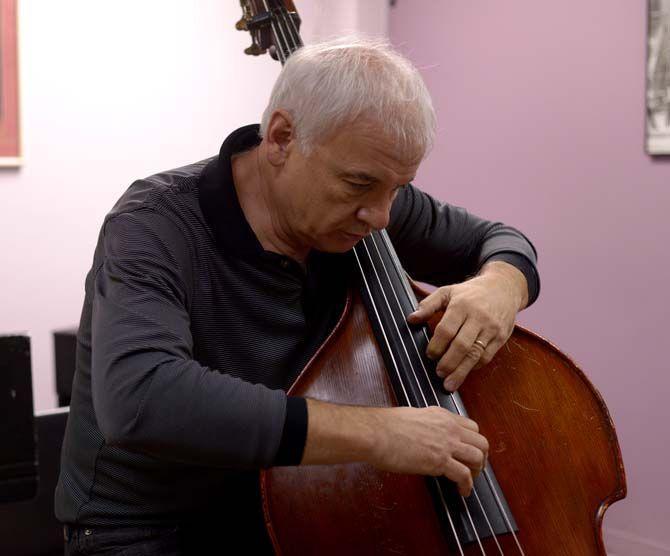Seventy-seven years after the empress died, the queen is taking her place, and a University professor is lending a hand in her transition.
Queen Latifah will play Bessie Smith, the Empress of the Blues, in the HBO film, “Blue Goose Hollow,” which is now in production for a 2015 release.
University jazz professor William Grimes wrote a prerecord for the movie, transforming Smith’s three-instrument song “Long Old Road” into the large band performance by Queen Latifah at the end of the film.
Prerecord is the Hollywood term for an arrangement done in advance of the film. It is different from the movie’s score, which is composed after filming.
The movie follows the life of Smith, whose work Grimes knows well. Since 1984, he has taught a history course at the University where he discusses Smith and her heavy influence on blues and jazz development.
Grimes thinks his knowledge of her music prompted the film’s music consulting company Neophonic, which has also done work on popular television shows like “Glee” and “Game of Thrones,” to contact him with its request.
Grimes narrated the song’s history and his work in its alteration.
The original song was written and released during Smith’s prime, but by 1930, America had moved beyond the blues. In 1933, producer John Hammond tried to revitalize Smith’s career by recording songs outside the genre and using more instruments than in her earlier recordings.
Grimes’ task was to arrange “Long Old Road” in Hammond’s style, as if it had been recorded in 1933.
“The first thing I thought was ‘Boy, how am I going to do this?’” Grimes said. “‘This is going to be difficult.’”
Director Dee Rees, who studied under Spike Lee, chose his arrangement, and Grimes said hearing the playback of Los Angeles musicians performing it was rewarding.
This is not the first time Grimes has undertaken such a project. His work includes around 250 arrangements and compositions, and he’s worked with musicians including The Beach Boys, Aaron Neville, Eartha Kitt and Randy Newman.
Grimes said he does not dwell on past projects, though, because there isn’t enough time to wallow in failures or gloat on successes.
“My favorite project is whatever’s coming next,” Grimes said. “Whatever I am working on right now.”
The conversational nature of jazz appealed to Grimes, who was first trained as a classical musician. He said jazz audiences never judge a performance the way classical ones do.
“People often take themselves very, very seriously,” Grimes said, “But when you’re playing jazz, there is a freedom that’s really fun.”
Grimes does not consider himself a part of the music industry, which he says fills demands for clients. He said his position in higher education allows him to make music he likes and hopes other people will enjoy too.
In his classes, Grimes likes to show students where his projects start and how they progress, sharing with interested undergraduates and sometimes recruiting graduate students for input.
“Some call it research. Call it what you want,” Grimes said. “I’m not doing research in the traditional scientific sense. I am coming up with new ways to present something and get it performed.”
Though he does not watch much television or have HBO, Grimes said he will try to see his contribution to the film after its release.
Jazz professor’s music to be featured in HBO movie
October 22, 2014
Prof. Grimes





